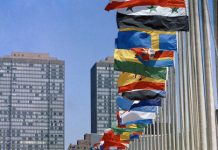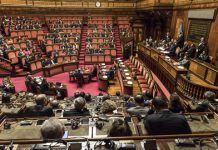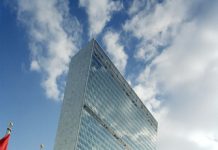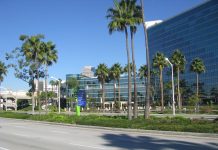Photo credit: DiasporaEngager (www.DiasporaEngager.com).
By Nkechi Taifa, Esq. —
The U.S. Department of Justice has fired a dangerous shot across the bow of Asheville, North Carolina, and Buncombe County, threatening legal action if they dare move forward with recommendations from their Community Reparations Commission. The DOJ claims that race-based remedies could violate federal civil rights laws. Let that sink in: a department ostensibly tasked with advancing justice is instead being weaponized to stifle it.
The irony is staggering. the Supreme Court recently gave immigration agents the green light to use race as a factor in stops, effectively legitimizing racial profiling. In other words, race can be used to oppress, but not to repair. The DOJ’s warning to Asheville perfectly captures America’s hypocrisy: race is acceptable when wielded as a tool of state violence but forbidden when invoked as a tool of justice.
The Legitimacy of Race-Conscious Remedies
Let’s be clear: in my legal arsenal, race-conscious remedies are not only legitimate, they are necessary. History matters. Centuries of enslavement, Jim Crow/apartheid, redlining, and state-sanctioned discrimination created racial disparities that still scar this country. Pretending that a “colorblind” approach can fix race-based harm is both intellectually dishonest and morally bankrupt.
In 2023, Justice Ketanji Brown Jackson wrote in her dissent on affirmative action that ignoring race in remedies is akin to “throwing away your umbrella in a rainstorm because you are not getting wet.” Asheville’s commission recognizes the downpour of inequity — in housing, healthcare, education, wealth, and criminal justice — and seeks to craft solutions. That is exactly what justice demands.
Beyond the Master’s Tools
When the conservative organization Judicial Watch sued Evanston, Illinois last year over its pioneering reparations program, I argued to colleagues that defending reparations requires more than simply relying on “the master’s tools.” We must be creative, strategic, and bold and affirmatively push comfortable boundaries. Legal frameworks must stretch to meet the demands of justice, not shrink from them. Indeed, international law recognizes the right to reparations for crimes against humanity. Why should the United States — a country built on the wealth of stolen labor and stolen land — be exempt from those global standards?
Political Retrenchment and Moral Resolve
We are living through a dangerous moment. From anti-DEI rollbacks to the banning of Black history books, America’s political climate is hostile to truth and repair. In my recent writings, I’ve urged us to stay strong in this time of political turmoil. Despair is seductive, but it is not an option. Justice delayed is not justice denied — unless we surrender. The movement for reparations has weathered storms before, and we are not about to fold now.
Exposing Hypocrisy, Rejecting Distractions
The current DOJ Asheville threat also echoes absurdities I’ve challenged in other contexts: calls for “white reparations,” bills designed to mock the concept of repair, eagerly deploying troops to “fight crime” in DC yet refusing to do so to protect the Capitol, and the relentless attempt to whitewash history while silencing truth. These are distractions meant to sow division and derail justice. We must keep our eyes on the prize: the right of Black people to redress for centuries of harms that still manifest today.
Building the Movement, Doubling Down
Reparations is not a fringe idea. From Evanston to California, from New York to Illinois, state and local efforts are advancing. Universities and religious institutions are investigating abuses in their own backyards and recommending repair. Globally, voices are louder than ever in demanding accountability for the enslavement era and colonialism. And here in the United States, despite the backlash, the movement is growing — in churches, classrooms, city councils, and communities across the country.
The DOJ may hope to intimidate Asheville and other jurisdictions, but their “warning” only underscores the urgency of our cause. If race can be invoked to criminalize, it is absurd not to invoke it to repair.
Be clear. The Reparations Movement is not retreating. We are doubling down. Asheville’s Reparations Commission is on the right side of history. And this country must decide: will it continue the hypocrisy of oppression cloaked in law, or will it finally embrace justice, truth, and repair?
Source: Medium (via Nkechi Taifa)
Featured image: Asheville, North Carolina City Hall
Source of original article: The Institute of the Black World 21st Century (ibw21.org).
The content of this article does not necessarily reflect the views or opinion of Global Diaspora News (www.GlobalDiasporaNews.com).
To submit your press release: (https://www.GlobalDiasporaNews.com/pr).
To advertise on Global Diaspora News: (www.GlobalDiasporaNews.com/ads).
Sign up to Global Diaspora News newsletter (https://www.GlobalDiasporaNews.com/newsletter/) to start receiving updates and opportunities directly in your email inbox for free.






























